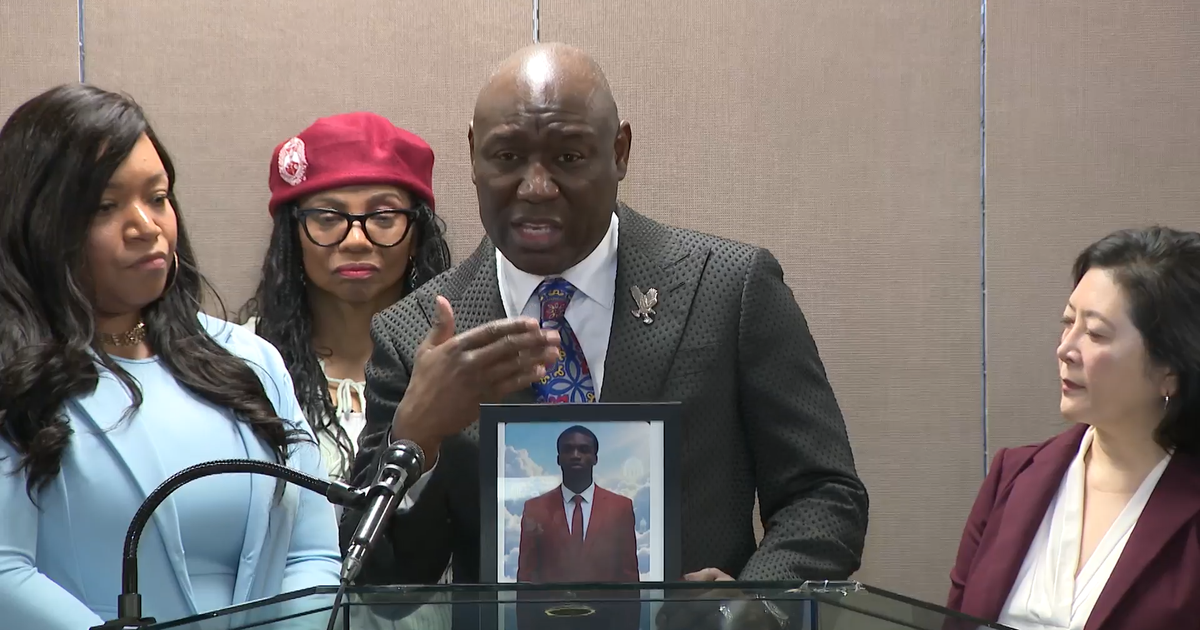Chelsea Manning Seeks Presidential Pardon For WikiLeaks
HAGERSTOWN, Md. (AP) -- Army Pvt. Chelsea Manning is seeking a presidential pardon for sending reams of classified information to WikiLeaks, a leak she says was done "out of a love for my country and sense of duty to others," according to documents released Wednesday.
Manning's lawyer, David Coombs, sent the Petition for Pardon/Commutation of Sentence on Tuesday to President Barack Obama through the U.S. Justice Department, and to Army Secretary John M. McHugh.
The White House said last month that a Manning request for a presidential pardon would be considered like any other.
Manning, formerly Bradley Manning, is serving a 35-year sentence at Fort Leavenworth, Kan., for her conviction July 30 on 20 counts for disclosing the information while working as an intelligence analyst in Iraq in 2010. Manning has said she wants to live as a woman and receive hormone therapy for gender dysphoria -- the sense that she is physically the wrong gender.
The leak of hundreds of thousands of battlefield reports, diplomatic cables and a video of a U.S. helicopter attack that killed civilians was the largest-volume leak of classified material in U.S. history. Manning got the longest sentence ever for disclosing U.S. government secrets to others for publication.
The Obama administration has cracked down on security breaches, charging seven people with leaking to the media. Only three were prosecuted under all previous presidents combined.
Mark Osler, a law professor and founder of a commutation clinic at St. Thomas University in Minneapolis, gave Manning's petition a "zero percent" chance of success, given the relatively low number of pardons granted by Obama. The president has granted 39 pardons and one commutation since taking office, and denied 1,333. That's a lower rate than any recent predecessors, Osler said.
It's also very early in Manning's confinement for the White House to seriously consider such a request, Osler said. Pardon applicants ordinarily must wait five years after their release to be eligible for consideration. Those seeking to have their prison sentence commuted to time served generally must show they were over-sentenced or that they underwent extraordinary rehabilitation in prison, Osler said.
Pardon applicants can request a waiver of the five-year waiting period, according to the federal Office of the Pardon Attorney at the Justice Department. Manning's application doesn't mention a waiver. Coombs said in an emailed response to The Associated Press that a waiver request is implicit in the filing.
Manning signed the petition with her legal name, "Bradley Manning," not Chelsea. Coombs has said anything having to do with the pardon or court-martial would have to be in Bradley's name. Officials at Fort Leavenworth say Manning would have to get a legal name change to be known as Chelsea.
Manning wrote in the petition that she started questioning the morality of U.S. actions in Iraq and Afghanistan while reading secret military reports on a daily basis in Iraq.
"When I chose to disclose classified information, I did so out of a love for my country and sense of duty to others."
Manning acknowledged she broke the law, adding, "I regret if my actions hurt anyone or harmed the United States." That's different from her unsworn courtroom statement Aug. 14, when Manning told a military judge: "I am sorry that my actions hurt people. I'm sorry that they hurt the United States."
Coombs said in an email that Manning's statements about harm are not contradictory.
"The harm offered by the Government during the trial was speculative at best. The majority of the instances provided by the Government for potential harm either were unrealized or had other more plausible causes, rather than Private Manning's conduct, for the potential harm," Coombs wrote.
At Manning's trial, government witnesses testified that some of the leaked information endangered information sources, forced ambassadors to be reassigned, were used as al-Qaida propaganda and even obtained directly by Osama bin Laden.
However, Coombs wrote in a cover letter to Manning's petition that none of Manning's disclosures caused any "real damage" to the United States and that the documents were not sensitive information meriting protection.
Coombs submitted 11 documents in support of Manning's petition. The submissions include five documents pertaining to Sgt. 1st Class Paul Adkins, one of Manning's former supervisors. The sergeant testified that he was reprimanded and demoted, apparently for failing to report Manning's troubling behavior -- including a photo of the soldier in a blond wig and lipstick -- partly because he couldn't risk losing an intelligence analyst.
Also among the documents was a letter from Amnesty International, which said Manning's leaks exposed potential human rights violations.
(Copyright 2013 by The Associated Press. All Rights Reserved.)







